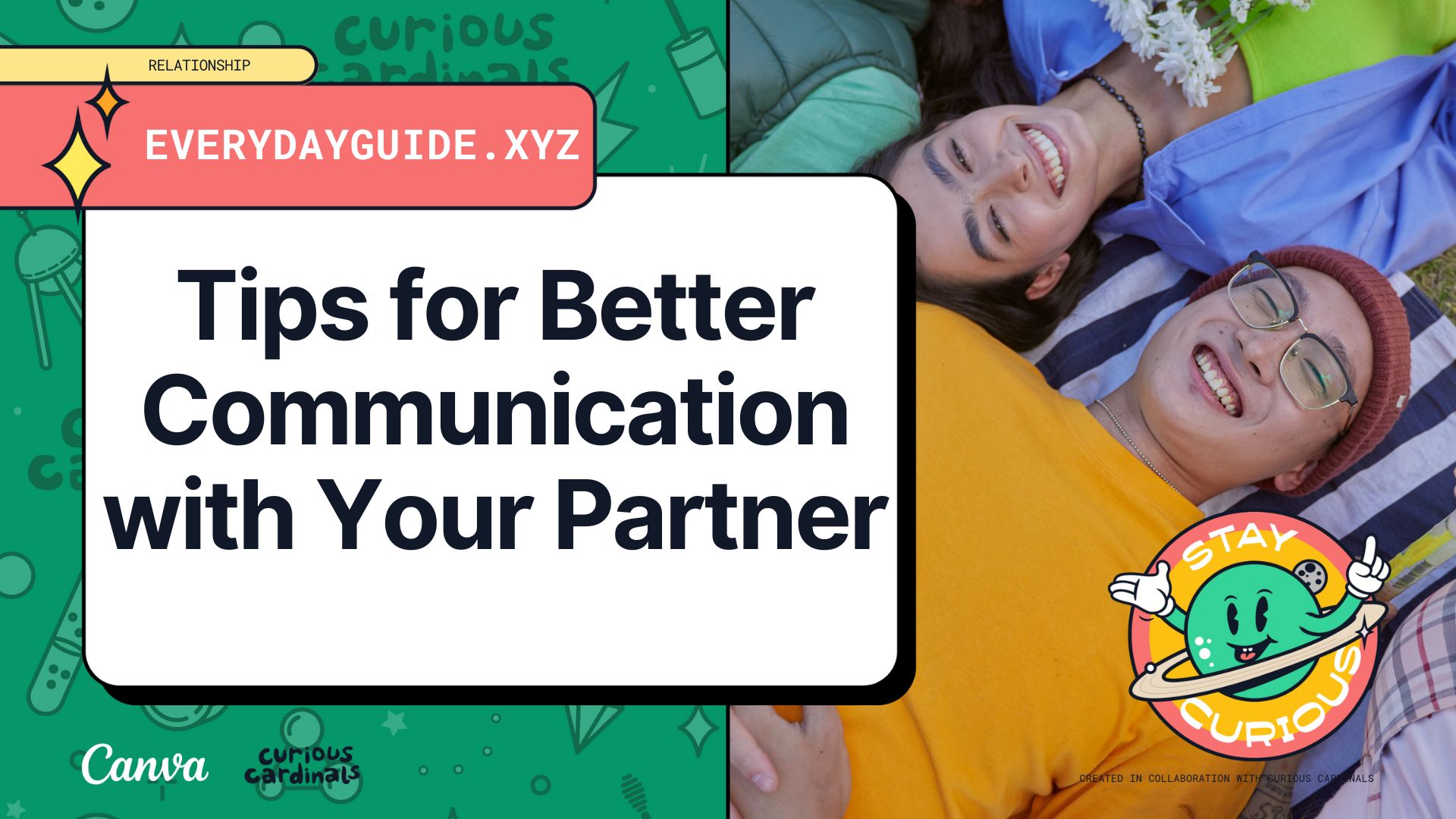At the core of any functional relationship is communication. Among romantic relationships, good communication can mean the difference in thriving union that last and one that falters under the weight of life’s tribulations. This all-encompassing guide will delve deeper into the best tips, advice and secrets to strengthen bonds of communication with your partner.
From learning how to listen with empathy to mastering the art of fighting fair, we have you covered.setContent These learnings are beneficial regardless of whether you are in a new relationship or have been together for years, and they will help guide you as you deal with the intricacies in communication between people and begin to mold your bond into something more robust and resilient.
Communication Is the Efficacious Foundation of Good Relationship

Great Communication in Relationships Is Based on True Respect, Trust & Empathy — passiveaggressivehusband It is more than just trading words, it is about creating a space where both partners feel like they are seen, heard and counted! This foundation is important for coping together with the best and worst life has to offer, keeping a strong emotional attachment.
In it he talks about one of the foundational points of being able to be vulnerable with your partner. It enables true intimacy and enriches your relationship. When you share your thoughts, feelings and experiences honestly, you give your partner the chance to really get to know you and be there for you. Your partner feels more comfortable with sharing when they see you are ready to confide in them, and that pattern of cooperation builds up trust and emotional connectedness between the two of you.
The crux of what he wanted me to learn: Listen:Active listening
One of the keys to effective communication with your partner is active listening. This means making the effort to really listen what your partner has to say, know and interpret their behest, and thoughtfully react. It is more than words that you hear and less about what has been said rather than the emotions or forces that drive it.
In order to improve your active listening we need to use some of these techniques
1. Give Your Full Attention
For example, when your partner is talking to you stop looking at your phone or turn off the television. Look your friend in the eye and use nonverbal cues, like nodding, to let them know you are listening. This shows they you care about what they have to say and are 100% present.
2. Avoid Interrupting
It helps for your partner to complete their thoughts first before forming your response. Constant Interruptions: these make your partner feel as if you are not listening to or respecting them. If you require further details, so hold until the conversation reaches a stopping point to redirect or clarify your question.
3. Reflect and Paraphrase
A good way to listen for both of you is; after your partner speaks in full, you can ask them if what they said is, were in your shoes. This technique is called reflective listening., it helps to confirm that you have understood the message they intended and also lets them know that you are actively hearing their words.
While listening is a vital component, proper expression of your thoughts, feelings and intentions forms an instrumental role in communication with each other. Because when you can communicate using clear expression, misunderstandings are few and far between — your needs, thoughts, and feelings come across as they are.
1: Practice self-expression — here’s how
Avoid talking to yourself in “you” rather than “I.” Instead of saying, “You always let me down by canceling plans,” say, “I feel hurt when plans are canceled at the last minute.” This strategy prevents it from seeming as if you are attacking your partner, and opens up the conversation to a more constructive one.
2. Be Specific and Direct
Never speak vaguely (even in matters of importance.) Let them know your need, expectations, and worry. For example, instead of saying, “You never help around the house,” try word it as, “I’d appreciate it if you could help with the dishes after dinner (or when we have guests over/for a special occasion) as this allows me to…”.
3. Timing and Venue
Important conversations require the right timing. Select a time when both you and your partner are at rest, not busy, able to actively participate in the conversation. Attempt to Discuss Sensitive Subjects Publicly of During Stressful Moments
Non-Verbal Cue: The Love Language Minus Words
Most of how we interact with our partners is nonverbal. Sometimes the words we do not use are just as important. Nonverbal cues tip no 6: Understand it and use it to your advantage : More than help you in to communicate, non verbal is the way how cross the barrier of being a human with another human
Some examples of nonverbal communication to pay attention to include:
1. Body Language
Even your body language — your posture, gestures and facial expressions that convey some message. This includes open body language, e. g., not folding her arms and standing with squared shoulders. This will implant that you have interest in what your partner has to say so not looking at them would mean the opposite.
2. Touch
Touch – Physical touch is the most transparent way of a non – verbal exchange, especially in romantic or couple relationships. Whether it is touching an arm, holding hands or giving a simple hug, often we can transmit the message of support and affection and that everything will be okay even when the words fail us.
3. Tone of Voice
There is a right way to put things into words and wrong way, and often which one you choose can make all the difference. Listen to the way you speak: are your voice cogent, volume and rhythm at the right level. A soft, soothing tone can relax people in heightened states of tension and an enthusiastic tone can be allow the speaker to express excitement or joy.
Manage Conflict: Negotiation-Skillz in Argument

Every relationship is bound to encounter conflict, but it is how you deal with disagreement that determines whether your partnership will last. Communicating constructively during fights is key to actually solving problems and building your relationship.
1. This would sound cliched but stay calm and take breaks if you need to.
It is easy to hit them with low blows, especially during the height of emotions. If you get too mad or upset, DROP OUT OF THE FUCKING CONVERSATION! If this is the case, just agree on a time to come back to the issue when you both have some distance from it and can talk more reasonably.
2. Address the Problem, Not the Person
When facing conflict, you should address the problem instead of attacking your partner’s character. Instead of saying “You area selfish,” say “When my needs are not prioritized, I feel unwanted.”
3. Use “We” Language
Instead, view differences of opinion as a problem that you and your partner can solve together. It makes teamwork & responsibility belongs too. An example is, “How can we help make the project’s finances balance?” as opposed to “You have to stop spending so much cash.”
Emotional Intelligence on Relationships Understand and Note our Emotions

The primary factor on how to talk softly with Sheetal is having emotional intelligence. On one side, it means being able to identify your own emotions, through understanding and managing them; on another side, it is also tied to making sense of the emotional world of others.
So what can you do to boost your emotional intelligence in a romantic partnership,्
1. Practice Self-Awareness
Reflect on your own emotions and how they impact the relationship When you know what triggers your emotions and how these emotions show up, it helps you communicate better as a couple.
2. Develop Empathy
Even if you are at odds, take a step back and put yourself in your partner’s shoes. Empathy is what enables you to get on their level and react accordingly with care and understanding.
3. Manage Your Reactions
Get into the habit of pausing and taking a deep breath before you react to emotional responses. This small pause has a huge positive impact on your response which prevents you from saying something or doing something that you might regret.
The Super Power of Thankfulness and Acknowledgment

Showing gratitude and reinforcing positive consequences are powerful methods for improving communication and your relationship. When partners feel honored and appreciated, they are more willing to be open about their feelings and collaborate on difficulties.
Appreciation + Positive Reinforcement in a Relationship
1. Express Gratitude Regularly
Over time, get in the habit of thanking your partner for more and bigger little things. It can be as simple as making breakfast, sending you emotional support, or even being there for you: appreciating them and their efforts will always make a good impression.
2. Offer Specific Compliments
Avoid giving generic compliments and instead, give your partner very personalized compliments that shows you notice him or her in a good way. Saying something like, “I love how passionate you are about your work,” is more substantial than saying a generic, “You’re awesome.”
3. Be Happy For Each Other
Support your partner more than anyone else. Even when they do the smallest thing, celebrate their achievement and be genuinely happy for them. And, this mutual support enhances your connection prompting you to have an open communication about what you want to achieve in the future.
Also Read More:
- 6 Smart Shelving Ideas for a Clutter-Free Pantry
 It might be tough to find what you need, but with [smart shelving ideas for a clutter-free pantry] you can cut this turnover in half and make meal prep much more organized. A well-ordered pantry not only saves time, but will… Read more: 6 Smart Shelving Ideas for a Clutter-Free Pantry
It might be tough to find what you need, but with [smart shelving ideas for a clutter-free pantry] you can cut this turnover in half and make meal prep much more organized. A well-ordered pantry not only saves time, but will… Read more: 6 Smart Shelving Ideas for a Clutter-Free Pantry - 20 Tips for Using Clear Jars in Your Pantry
 One of the simpler (yet no less effective) ways to keep an organized pantry is with clear jars. Cook up a storm or just cook, clear jars in your pantry make stylish & practical ways to organize your food. Some details… Read more: 20 Tips for Using Clear Jars in Your Pantry
One of the simpler (yet no less effective) ways to keep an organized pantry is with clear jars. Cook up a storm or just cook, clear jars in your pantry make stylish & practical ways to organize your food. Some details… Read more: 20 Tips for Using Clear Jars in Your Pantry - 5 Simple Steps to Declutter Your Closet
 Does closet organization has you feeling overwhelmed? You’re not alone. A clean closet seems like a distant memory as clothes, shoes and accessories begin to take over. Fortunately, you can use [5 Simple Steps To Increase Your Closet Space] to turn… Read more: 5 Simple Steps to Declutter Your Closet
Does closet organization has you feeling overwhelmed? You’re not alone. A clean closet seems like a distant memory as clothes, shoes and accessories begin to take over. Fortunately, you can use [5 Simple Steps To Increase Your Closet Space] to turn… Read more: 5 Simple Steps to Declutter Your Closet - How to Let Go of Items You Don’t Need Anymore
 It reached a point that it can emotionally and mentally exhausting to finally part with it. Sentimental value: a lot of us are hoarders, or we like buying stuff hoping one day we’ll use it. But, if you can learn to… Read more: How to Let Go of Items You Don’t Need Anymore
It reached a point that it can emotionally and mentally exhausting to finally part with it. Sentimental value: a lot of us are hoarders, or we like buying stuff hoping one day we’ll use it. But, if you can learn to… Read more: How to Let Go of Items You Don’t Need Anymore - How to Lose Weight Fast: Myths vs. Facts
 This has led everyone on an experimental quest travelling through the world of myths and misconceptions in their efforts to lose weight at a rapid pace. Weight Loss Facts And Fiction Need To Be Known For Smarter Results This is a… Read more: How to Lose Weight Fast: Myths vs. Facts
This has led everyone on an experimental quest travelling through the world of myths and misconceptions in their efforts to lose weight at a rapid pace. Weight Loss Facts And Fiction Need To Be Known For Smarter Results This is a… Read more: How to Lose Weight Fast: Myths vs. Facts
Technology Communication: Advancing as a Result оf thе Digital Age
Technology has segued how couples communicate, especially in this modern digital age. It can help in new ways to connect but also be a challenge to communicate.
Here are some suggestions for how you might navigate technology in your relationship.
1. Make sure that you set aside time for no technology
Simply block out a designated time every day or week where you turn off your screens and engage in conversation instead. This can also help keep technology from being a roadblock to close communication.
2. Leverage Technology to Build Deeper Connections
Use Technology to Keep in Touch: It is the easiest way to stay connected with each other, and it is very useful if one of you guys doing a long-distance relationship. Send heartfelt texts, share pics or have short Facetime/Zoom calls to keep things personal. ⎇
3. Discuss Digital Boundaries
Initiate conversations about how you expect your child to use social media, their level of privacy and engaging with others online. Setting your limits well can lead to less confusion and give rise to trust.
Communication Strategies To Have for Long Term Relation

Creating healthy communication patterns will require a certain amount of sweat equity, but in the long run they can change the health and longevity of your relationship. Here are a few tips to get and key information on how to make sure communication stays strong over the years:
1. Schedule Regular Check-Ins
Schedule a regular, weekly or monthly relationship “check-in.” The time is ripe to close the chapter of another year and talk about concerns, joys and future hopes. This prevents minor issues from escalating into severe problems and keeps you on the same path in your relationship.
2. Always Accomplishing Progress — TOGETHER
Look at relationship workshops, books on communication or even attending a couples therapy to continue improving your ability to communicate. Realizing that your relationship is a work in progress can help each partner remain committed to the growth.
3. Tailor Your Communication Based on the Human Relationship You Have
However, you and your partner may need different things at different stages of the relationship. Be open to shifting your behaviour as means of connection that fit, even if you are working on a work change family changing or retriement.
How to Break Common Communication Blocks in Relationships
Couples struggle to communicate effectively, even if they have the best of intentions. Recognizing and power through these may be what stands in the way for keeping a successful, communicative relationship.
Here are some common communication barriers and how to avoid them.
1. Assumption and Mind-Reading
Assuming we know what our partner is thinking or feeling without checking in with them is one of the most common pitfalls that gets in the way of clear communication. This may cause misunderstandings and unnecessary disputes.
Solution: Do your best to ask open-ended questions when trying to figure out what is going on inside of your partner. Do not assume and instead go to the dialogue which curiosity manifested in sparking a discussion.
2. Defensiveness
But of course we feel defensive, when faced with criticism or attack. But getting defensive will thwart constructive communication and prevent things from being resolved.
Solution: Do not immediately defend yourself when listening to your partnerriad. Give it some thought and answer with compassion, not confrontation.
3. Stonewalling
Stonewalling refers to when one partner withdraws completely and puts up a barrier between the two. This is so invalidating and perpetuates such feelings of slight and abandonment for the other partner.
Solution: If you feel as though the conversation is too much for you to handle and need a break, let your partner know. Just say you need some time to work through the issue at hand — but that we can revisit the conversation later.
Forgiveness: A Component of Healthy Communication
In any long-term relationship when developing open channels of communication forgiveness then becomes key. Nobody is perfect and there will always be times when hurtful things are said or mistakes are made. Forgiveness is a key to resuming open and trust worthy communication.
1. Acknowledge the Hurt
You must accept the hurt or pain in recognizing forgiveness before you can forgive. This is not to be confused with ruminating, but having a consciousness of the contribution it has made on the relationship.
2. Choose Forgiveness
We have to understand that forgiveness is not a feeling, but a choice. It is deciding to stop being resentful and vengeful. This option can bring about a healing and the rekindle of intimacy in the relationship.
3. Learn from the Experience
See those situations that require forgiveness as a chance to learn. WHY This happened and how you can BOTH work to NOT let it happens ever again.
Creating intimacy through conversations
Although it is essential to be in communication on the daily, having deep meaningful conversations will do wonders for your intimacy and understanding. These discussions help reveal their inner landscape, dreams, fears and priorities.
Some strategies to foster deeper conversations include this bugling,
1. Ask Thoughtful Questions
Here is a lot of thoughtful questions you can talk to your partner about. These might include:
- What are your wildest dreams for your future?
- Which life experiences have had the biggest impact on you?
- What one thing in the world would you change if you could and why?
2. Establish Vulnerability as a Safe Space
Create an atmosphere, where your partner can speak to you freely about their darkest thoughts, share feelings without the anxiety of taboo. Ground rules could involve things like listening without interruption or criticism.
3. Getting together on common Interests and Values
Discuss things you both love This might mean reading a book together and talking about any themes in it, or discussing philosophical ideas you both are interesting in.
Communication Involving Different Stages Of The Relationship
What You Need To Do · Sometimes the kind of communication you need and how you need it to be delivered changes as relationships evolve. Recognizing how to modify your communication style as you progress will enable your bond to be maintained along the way.
Here are different communication strategies for various phases of relationships.
1. New Relationships
- If you are at the beginning of your loving journey, concentrate on the following:
- Learning how to communicate with each other
- Starting with open and honest conversation
- Talk to the kids about what is expected of their role and where you set parent boundaries.
2. Long-Term Partnerships
- For long term partners:
- Stop taking communication lightly; more than ever, value the substantial talks
- Communicate, communicate, and then communicate some more, organize dates to discuss relationship satisfaction and goals
- Discover the different ways of maintaining interesting and enriching communication.
3. Relationships Undergoing Big Life Transitions
- At key life events (moving in together, children, career changes):
- More Check-ins to Deal with Fresh Challenges
- Give him and yourself some time to get used to the situation
If you find it difficult to communicate effectively while going through big changes, please seek professional help.
Understanding the impact of cultural differences on communication
In our world today, which is becoming more and more diversified, many relationships occur where divides of cultural differences have to be crossed. Successful communication in these contexts requires identifying and traversing the cultural deltas.
The following points offer a look at how cross-cultural communication might go wrong:
1. Understand Various forms of Communication
The need also to navigate with languages that have both direct and indirect forms of communication. Understand these differences and talk about how they could affect your interactions.
2. Discover Each Other’s Cultures
Demonstrate an interest in finding out more about your partner’s culture. This may involve traditions and values, which in turn can impact how they enter into relationships.
3. Develop Cultural Empathy
Before getting upset, you should think about what angle your partner may be coming from or how they may view things through their cultural lens. And this empathy can be so helpful in avoiding misunhigherstanding and building a deeper human connection.
Conclusion: Creating a Foundation of Communication for Life
But the way to get there is through effective communication and that’s something that will always remain a work in progress as all relationships do. You can use those strategies and insights to build better trust in your communications with your partner.
This is a work in progress so have it sink in that better communication is going to take time, patience and effort on both sides. Acknowledge any small victories as you go along and, more importantly, be kind to each other (and yourselves) as you learn how to communicate.
In the end, the time you invest in better communication will reap rewards with a more fulfilling relationship that leads to greater

